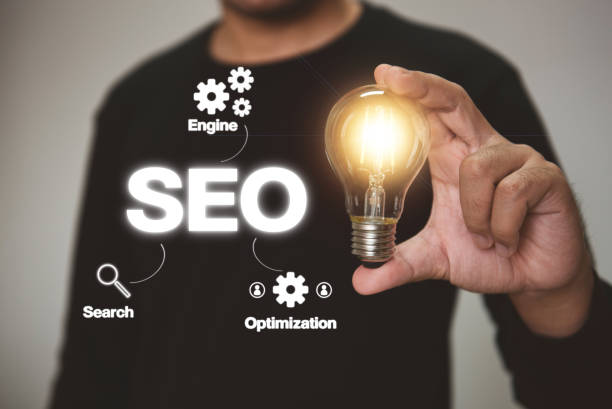In the dynamic landscape of the digital age, where online visibility is paramount, Search Engine Optimization (SEO) stands out as a game-changer for businesses and individuals alike. If you’re wondering why SEO is crucial for your website’s success, you’re in the right place.
Many small businesses and entrepreneurs are put off by the cost of sending out traditional press releases when it comes to public relations. Why pay hundreds of dollars to reach journalists, bloggers, and influencers through a press-release service when content can be created on the company’s website and distributed through Search engine optimization and social media channels?
What is search engine optimization?
Search engine optimization is improving the quality and quantity of website traffic to a website or a web page from search engines. SEO targets unpaid traffic rather than direct traffic or paid traffic.

Search engine optimization and SEO are excellent digital marketing strategies for increasing organic traffic and the visibility of a company’s website.
The quality of your traffic improves, and you eventually meet your sales or traffic generation goals.
Marketers typically employ this technique when they have a brand-new website and need to secure a top search engine ranking to drive more traffic.
SEO can help you convert website visitors into potential buyers, increasing sales.
Many people believe that SEO is simple to implement, but it is not until you know it firsthand.
As an Internet marketing strategy, SEO considers how search engines work, the computer-programmed algorithms that dictate search engine behavior, what people search for, the actual search terms or keywords typed into search engines, and which search engines are preferred by their targeted audience.
What is Search Engine Marketing
Search Engine Marketing (SEM) is a type of digital marketing that involves promoting websites by increasing their visibility in search engine results pages (SERPs) through paid advertising and search engine optimization (SEO) techniques.
SEM involves placing ads on search engine results pages, which appear when users search for specific keywords or phrases. These ads typically appear at the top of the search results or in a sidebar, and they are labeled as “sponsored” or “ad.” Advertisers pay for these ads to be displayed to users who are searching for specific keywords related to their business.
The primary goal of SEM is to drive traffic to a website through search engine results. By using paid advertising and SEO techniques, businesses can increase their visibility and reach more potential customers. SEM is an effective way to target specific audiences and drive conversions, making it a valuable tool for businesses of all sizes.
Types of Search Engine Optimization
- On-page SEO: This refers to optimizing the content and structure of your website to make it more attractive to search engines. Some common on-page SEO techniques include optimizing page titles, meta descriptions, headings, and image alt tags with relevant keywords, ensuring that the website is mobile-friendly and has a fast loading speed, and creating high-quality, engaging content that provides value to the user.
- Off-page SEO: This refers to optimizing factors outside your website that can influence its search engine ranking. The most common off-page
- An SEO technique is building high-quality backlinks from other websites. Backlinks are links from other websites that lead to your website. The more high-quality backlinks your website has, the higher it will likely rank in search engine results pages. Other off-page SEO techniques include social media marketing, influencer outreach, and guest blogging.
Both on-page and off-page SEO are important for improving your website’s visibility and search engine ranking. A well-optimized website will not only rank higher in search engine results pages but also provide a better user experience for your visitors, which can lead to increased traffic, engagement, and conversions.
Why Search Engine Optimization is important for your website
1. Enhanced Visibility and Increased Traffic:
SEO is the magic wand that elevates your website’s visibility on search engine results pages (SERPs). When your website ranks higher, it’s more likely to be clicked on by users. Increased visibility leads to more organic traffic, giving your website the exposure it deserves.
2. Credibility and Trust Building:
Users tend to trust websites that appear on the first page of search results. SEO not only improves your website’s ranking but also builds credibility. By optimizing content, improving site structure, and focusing on user experience, you signal to both users and search engines that your site is trustworthy and relevant.
3. Better User Experience:
SEO isn’t just about pleasing search engines; it’s about enhancing the user experience. A well-optimized website is often user-friendly, with faster load times, mobile responsiveness, and relevant content. These factors not only satisfy search algorithms but also keep your visitors engaged and satisfied.
4. Insightful Analytics for Informed Decisions:
SEO tools provide invaluable insights into your website’s performance. Analytics data can reveal what’s working and what needs improvement. By understanding user behavior, preferences, and demographics, you can make informed decisions to continually enhance your online presence.
5. Cost-Effective Marketing:
Compared to traditional advertising methods, SEO is a cost-effective strategy with a high return on investment (ROI). Once your website ranks well, the ongoing costs are relatively low, and the benefits continue over the long term.
6. Adaptability to Industry Changes:
The digital landscape is ever-evolving, with search engine algorithms frequently updated. SEO is not a one-and-done task; it’s an ongoing process that allows your website to adapt to industry changes. Staying abreast of these changes ensures your website remains relevant and competitive.
In conclusion, investing in SEO is not just an option; it’s a necessity for anyone serious about establishing a robust online presence. From increased visibility and credibility to providing a better user experience, the benefits of SEO are myriad. It’s time to unlock the full potential of your website with strategic SEO practices.
Ready to take your website to the next level? Explore our comprehensive SEO services and embark on a journey toward online success.

